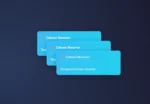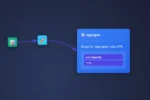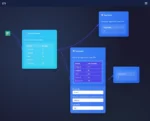Data engineering has quickly evolved into one of the foundational roles every organization relies upon for effective data management and insightful analytics. Whether you’re preparing to land a role or looking to hire a top-notch data engineering team, understanding common interview questions and their strategic answers is pivotal. At Dev3lop, our extensive expertise in data visualization consulting services has illuminated how crucial well-prepared candidates are for driving digitization efforts. This blog post will empower you with an understanding of vital interview questions and insights into how to respond confidently, displaying both your technical expertise and innovative thinking to potential employers.
Understanding the Core Responsibilities of a Data Engineer
Interviewers often begin by probing your depth of understanding regarding what data engineers do daily. This might seem straightforward, but an effective answer goes beyond listing tasks and focuses on showcasing your grasp of the strategic impact data engineers provide within technology-driven endeavors. Data engineering serves as the backbone to all successful data analytics projects, weaving the infrastructure necessary for effective storage, dissemination, and utilization of data insights. Highlighting your ability to design, build, manage, and continuously improve data pipelines demonstrates your readiness to deliver value quickly and reliably in any technical environment.
Incorporate examples of how your past projects involved structuring databases, maintaining ETL (Extract, Transform, Load) pipelines, or optimizing systems to better inform decisions. Your interviewer likely wants proof of your competency not just in technology proficiency but also in strategic thinking, which involves identifying potential data bottlenecks and proactively ensuring data availability for stakeholders. Emphasize your experience collaborating with analytics professionals, project managers, and stakeholders through effective working sessions that reduce miscommunication in analytics projects, ensuring timely and beneficial delivery of insights.
Technical Skills and Tools Interviews Ask About Most
Familiarity with Data Storage and Database Systems
As data environments increasingly shift toward cloud infrastructure, interviewers will inquire about your proficiency with cloud-based databases versus traditional on-premises systems. Your answers should demonstrate clear insight into the nature and benefits of SQL databases, NoSQL technologies, and distributed cloud environments like AWS Redshift, Azure Synapse Analytics, Google BigQuery, or Snowflake. Provide concrete examples that showcase your ability to optimize database structures for querying efficiency, cost management, and scalability.
A strong answer goes beyond the mere mention of technologies; it explains your criteria in selecting storage solutions based on the unique needs of projects you’ve encountered. For instance, explain scenarios detailing why you might have chosen a structured SQL-based database over a more flexible NoSQL implementation, justifying your decision-making processes with examples of scalability, latency, complexity, and analytics capabilities required by stakeholders.
Mastery of Data Pipeline and Automation Tools
Data engineers constantly orchestrate the movement and processing of vast pools of data. Expect interviewers to stress questions about pipeline management tools such as Apache Airflow, Azure Data Factory, Apache Kafka, Spark, or similar workflow automation tools. Highlighting your hands-on experience and success stories with these tools demonstrates your capability to handle real-time and batch data processing effectively.
Illustrate your strength by explaining specific challenges you’ve overcome in automating complex data workflows and how your solutions have reduced errors, improved data quality, or accelerated insights for analysts. Additionally, discuss your competency with scripting languages such as Python, and how you’ve leveraged your knowledge of Node.js single-processor execution and asynchronous capabilities to build streamlined automation solutions, make your data pipelines faster, and help stakeholders access up-to-date insights whenever needed.
Demonstrating Business and Strategic Thinking in Interviews
Your Role in Effective Data Governance and Security
Data engineers frequently act as gatekeepers of organizational data, ensuring stewardship, integrity, and compliance standards are consistently met. Interviewers specifically seek evidence of your understanding of frameworks governing data privacy, access, and sensitive handling such as GDPR, HIPAA, or CCPA. Be ready to articulate instances of your involvement in the implementation of data policies, security protocols, and compliance frameworks through practical data engineering tasks.
Your answer should convey the value you place on striking the right balance between data usability and security. Demonstrating knowledge of potential security risks and best practices such as data encryption at rest and in transit, anonymization of sensitive data, and effective roadmap-building for strategic risk reduction are powerful indicators of mature, strategic thinking during an interview. Providing concrete examples of increasing organizational trust in data assets through improved transparency, compliance, and security can differentiate you as a knowledgeable and trustworthy data engineering candidate.
The Importance of Clear and Actionable Data Modeling
Data modeling interview questions aim to identify your ability to effectively structure data for analytics consumption. Highlight your comfort with different modeling methodologies such as dimensional modeling, data normalization and de-normalization, star schema, and snowflake schema. Detail times you needed to translate complex business scenarios into accessible, efficient and scalable data models that non-technical stakeholders could easily navigate.
In answering these questions, emphasize not just technical details but also your broader understanding of the strategic value that properly structured semantic layers bring—facilitating cross-department collaboration and organizational agility. Your interview response should highlight your ability to clarify stakeholder needs through thoughtful semantic layering designs. Enhance your responses by showing an understanding of “what is a semantic layer” and discuss its role in aligning analytics and business intelligence objectives, allowing companies to easily gain insights and maintain analysis consistency without duplicated effort. For more insights, check our detailed explanation on what a semantic layer is and why businesses should care.
How You Can Demonstrate Adaptability and Problem-Solving Skills
Data engineers frequently encounter unexpected technological hurdles and shifting stakeholder expectations. Interviewers want to know how you’ve handled unpredictable situations, from surging volumes of incoming data, integration of legacy systems with modern analytics tools, or sudden, urgent stakeholder requests that disrupt established routines.
Frame your answer to such adaptability-focused questions by providing vivid examples of how you identified root causes of pressing problems, swiftly developed and implemented strategic solutions, and maintained stakeholder communication to minimize disruptions. Doing so demonstrates flexibility—an invaluable asset for making informed technology-driven decisions under tight deadlines or changing corporate priorities. Illustrate your skills in creatively re-purposing existing data pipelines, exploring innovative data visualizations, and ensuring continuous data availability and consistent analytics insights to stakeholders when unforeseen circumstances arise.
Final Thoughts: Approach Each Interview Strategically
Data engineers are increasingly perceived as strategic partners who deliver significant organizational insights. While technical knowledge matters, demonstrating your strategic mindset and adaptability further distinguishes you as someone who will add tangible value to the organization from early on. Being ready to debate tech stacks, data modeling techniques, cloud migration strategies, and data governance demonstrates deliberate preparation and positions you as someone who brings solutions, not just tools.
If your organization is interested in leveraging data engineering expertise through structured strategic conversations and advanced analytics solutions, also consider consulting professional support for your team’s initiatives. Feel free to reach out to our highly experienced consultants at Dev3lop, a leader in data, analytics, and innovation.

























